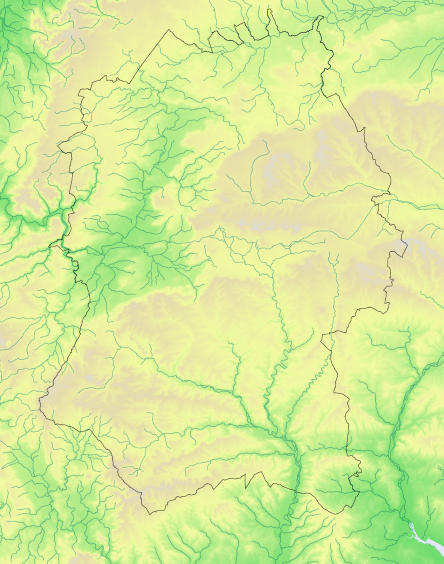Long-tailed Tit Aegithalos caudatus
Breeding distribution change
Common resident, numbers lower following harsh winters
Atlas species lists
- Breeding distribution 1995–2000
- Summer abundance 1995–2000
- Winter distribution 1995–2000
- Winter abundance 1995–2000
- Breeding distribution 2007–2012
- Summer abundance 2007–2012
- Winter distribution 2007–2012
- Winter abundance 2007–2012
- Breeding distribution change
- Summer abundance change
- Winter distribution change
- Winter abundance change
More Long-tailed Tit maps
- Breeding distribution 1995–2000
- Summer abundance 1995–2000
- Winter distribution 1995–2000
- Winter abundance 1995–2000
- Breeding distribution 2007–2012
- Summer abundance 2007–2012
- Winter distribution 2007–2012
- Winter abundance 2007–2012
- Breeding distribution change
- Summer abundance change
- Winter distribution change
- Winter abundance change
More maps for this atlas
Map explanation
This map shows where changes occurred in the breeding season distribution of the species in Wiltshire between 1995-2000 and 2007-2012, as revealed by the fieldwork for Birds of Wiltshire (Wiltshire Ornithological Society 2007) and the shared fieldwork for Bird Atlas 2007-2011 (BTO 2013) and for Wiltshire Tetrad Atlas 2007-2012.
Gains and improvements
Status
Nos tetrads

Absent to present
87
10%

Present to breeding
108
12%

Absent to breeding
105
11%
No change
Status
Nos tetrads

Present in both
62
7%

Breeding in both
256
28%
Losses and declines
Status
Nos tetrads

Present to absent
40
4%

Breeding to present
91
10%

Breeding to absent
58
6%
Long-tailed Tits are found right across Eurasia, from Iberia to China and Japan, and, in Europe, from the Mediterranean to Finno-Scandia. They are sedentary and can suffer high mortality during hard winters, but the size of their broods means that their numbers recover relatively quickly.
The species is widespread throughout most of Great Britain, being absent mainly from some upland areas of mainland Scotland, and from the Northern Isles and the Outer Hebrides. They expanded their breeding distribution only by a marginal 2% between the 1968-72 Breeding Atlas and “Bird Atlas 2007”. Their winter range on the other hand increased by 14% between the 1981-84 Winter Atlas and Bird Atlas 2007-2011 which means that they are now more widespread in winter than in summer.
In Wiltshire, Long-tailed Tits are absent only from large parts of Salisbury Plain and from a few other patches of exposed downland. Birds of Wiltshire recorded them in 615 tetrads, with breeding in 210 of them. WTA2 recorded them in 709 tetrads, with breeding in 469.
References
The following references are used throughout these species’ accounts,
in the abbreviated form given in quotation marks:
“1968-72 Breeding Atlas” – Sharrack, J.T.R. 1976: The Atlas of Breeding Birds in Britain and Ireland. T. & A. Poyser
“1981-84 Winter Atlas” – Lack, P.C. 1986: The Atlas of Wintering Birds in Britain and Ireland. T. & A. Poyser
“1988-91 Breeding Atlas” – Gibbons, D.W., Reid, J.B. & Chapman, R.A. 1993: The New Atlas of Breeding Birds in Britain and Ireland 1988-91. T. & A. Poyser
“Birds of Wiltshire” – Ferguson-Lees, I.J. et al. 2007: Birds of Wiltshire, published by the tetrad atlas group of the Wiltshire Ornithological Society after mapping fieldwork 1995-2000. Wiltshire Ornithological Society.
“Bird Atlas 2007-2011” – Balmer, D.E., Gillings, S., Caffrey, B.J., Swann, R.L., Downie, I.S. and Fuller, R.J. 2013: Bird Atlas 2007-2011: the Breeding and Wintering Birds of Britain and Ireland
“WTA2” – ("Wiltshire Tetrad Atlas 2 ") the present electronic publication, bringing together the Wiltshire data from “Birds of Wiltshire” and “Bird Atlas 2007-11”, together with data from further fieldwork carried out in 2011 and 2012.
"Hobby" - the annual bird report of the Wiltshire Ornithological Society.

